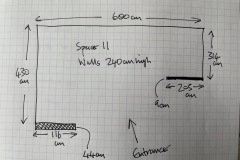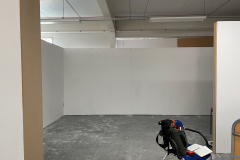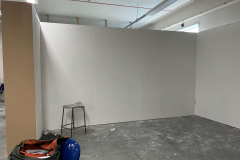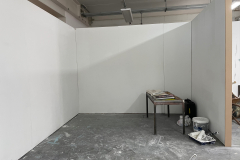Met with the DFA group on 13th May to look at and allocate the exhibition space. I have Space 11 in AVA G36 (Studio 4) on the ground floor. Starting to think about how I can develop my work over the next few weeks to present something coherent and make best use of the space. Initial thoughts are to take aspects of my current project and explore Mary Douglas’s notion that dirt/pollution is ‘matter out of place’.
Education, Practice and Society Learning Lunch
UCL Institute of Education, 5th May 2021
What can we learn from a student’s experience of designed, contingent and improvised online teaching, and how might this inform our post/perpetual pandemic practice?
I was fortunate to be a guest at the EPS Learning Lunch to share my experiences as a learner over the past three years, assembling formal and informal learning experiences in photography and fine art. Reflection on the pedagogic structure, relationship between and student experience of the components, which taken together correspond to progression from undergraduate to postgraduate taught to postgraduate research levels (see links below), spanning the contingencies of pandemic management measures, provided an opportunity to think again about the relationship between different forms of educational provision and learner trajectories. This raises issues of learner agency and responsibility, the strategies and tactics used by learners and the meaningful assemblage of educational experience at a time in which knowledge is increasing seen as a commodity and education framed in terms of providers and consumers. Some resonance here with Stephen Wright’s (2014) exploration of the ‘useological turn’ in the arts, and a shift from spectatorship to usership. Discussion invoked the issues and approaches explored by the Vauxhall Manor School Talk Workshop Group (1974-79).
Outline
Three years ago, I left the Institute, rewound thirty years to a fork in the road and took the other path. Since then I’ve combined posts in London, New South Wales and Singapore with education and practice as a photographer and artist. This has included the combination of online and face to face non-accredited courses and awards, an online MA at Falmouth University and a Professional Doctorate in Fine Art at UEL, my local university. At this learning lunch I want to reflect on what I have learnt, as an educator, from the experience of being a student in a range of contexts, and consider the manner in which universities have responded to pandemic related restrictions.
Through an initial 20 minute presentation and subsequent discussion I will consider the pedagogic structure of each of these forms of educational experiences from a student’s perspective and hope to draw on the experience of participants to consider at least some of a the following questions:
- where does responsibility for learning lie, and how do we align expectations?
- who is accountable for learning and how?
- what is the relationship between informal student-led support networks and formal provision?
- if the formal taught component of a programme is the visible tip of the learning iceberg, what lies beneath the surface?
- to what extent can student groups be considered a community?
- how can higher education programmes appropriately recognise and accommodate the skills, knowledge and experience of learners?
- what is the role of ‘usership’, bricolage and improvisation in the development of an educational programme and a learning trajectory?
- what can we learn from student experiences of specifically designed online programmes for the contingent development of online provision?
- what can we learn from student experiences of the contingent development of online provision for the design of online programmes?
- is higher learning in the throes of deinstitutionalisation?
- am I as atypical a student as I might at first seem?
OU/RPS Online Certificate in Digital Photography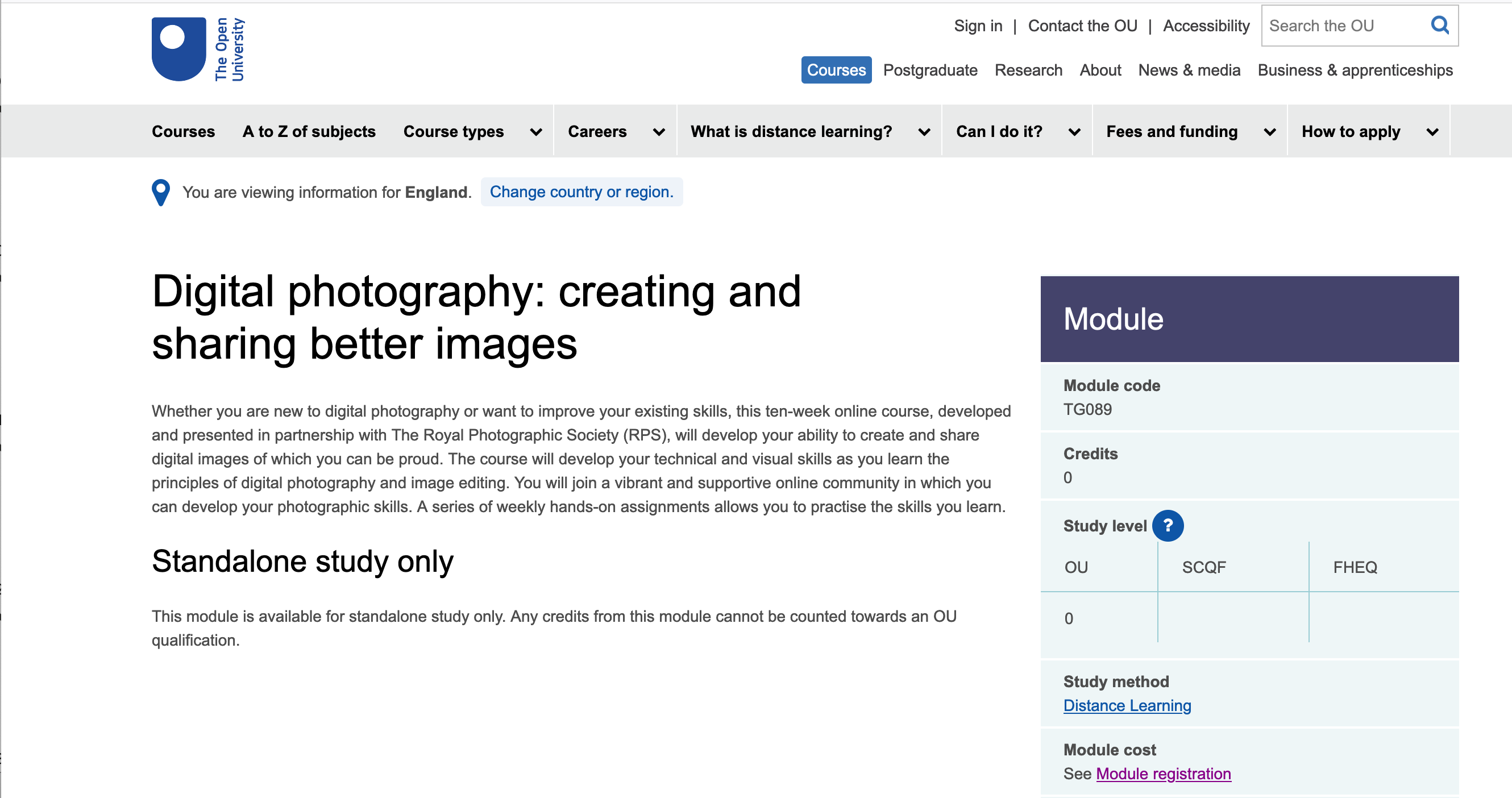
City Lit workshops
Open Studio Workshops
RPS Licentiate workshops
RPS Licentiate assessment
MA in Photography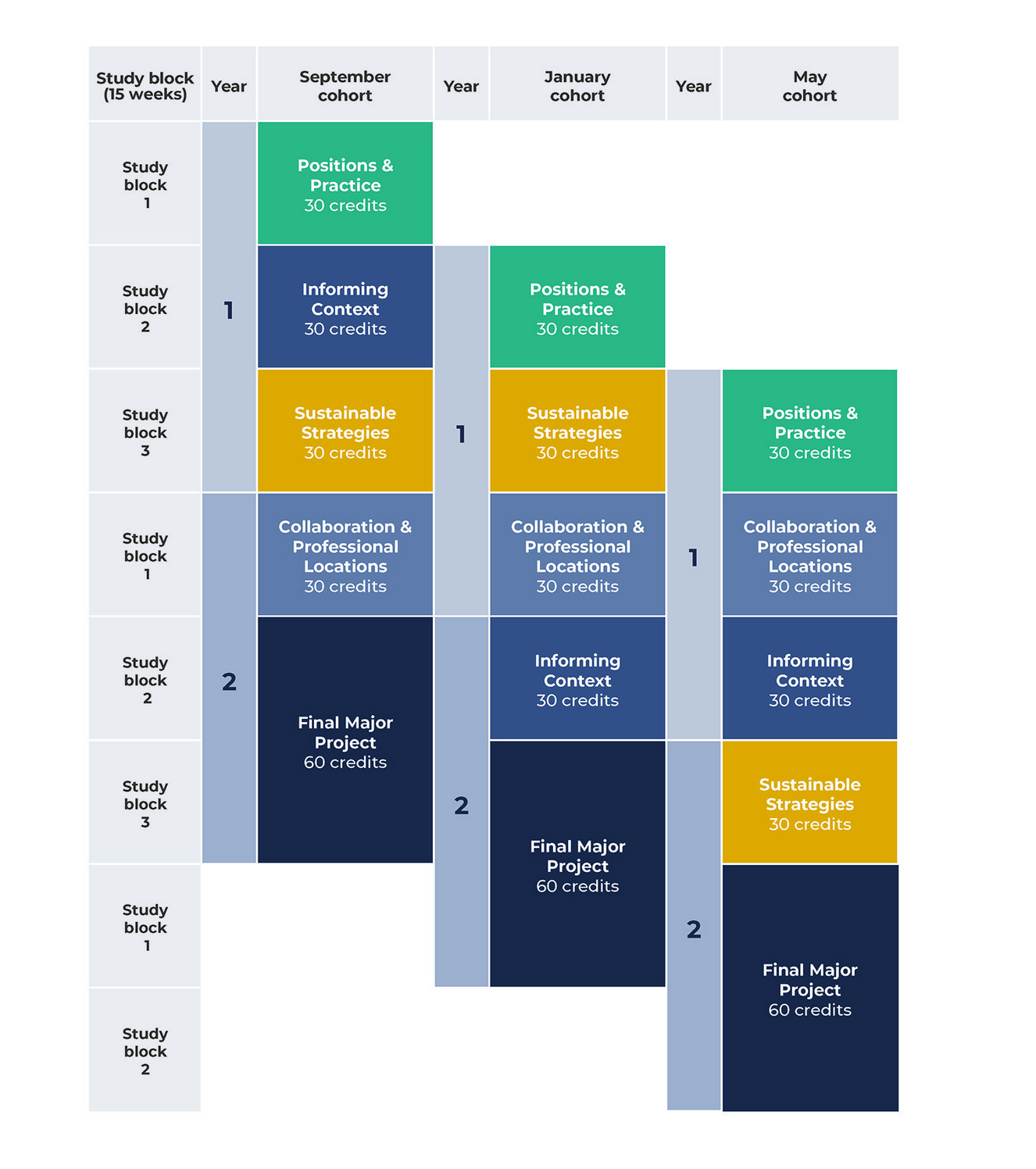
Four Modules
Final Major Project
Guest lectures
Repository
Workshops
Meetups
Lewis Bush Workshops
The Photographers Gallery Workshops
London Centre for Book Arts
Rapid Eye Darkroom
Arte Útil
Professional Doctorate in Fine Art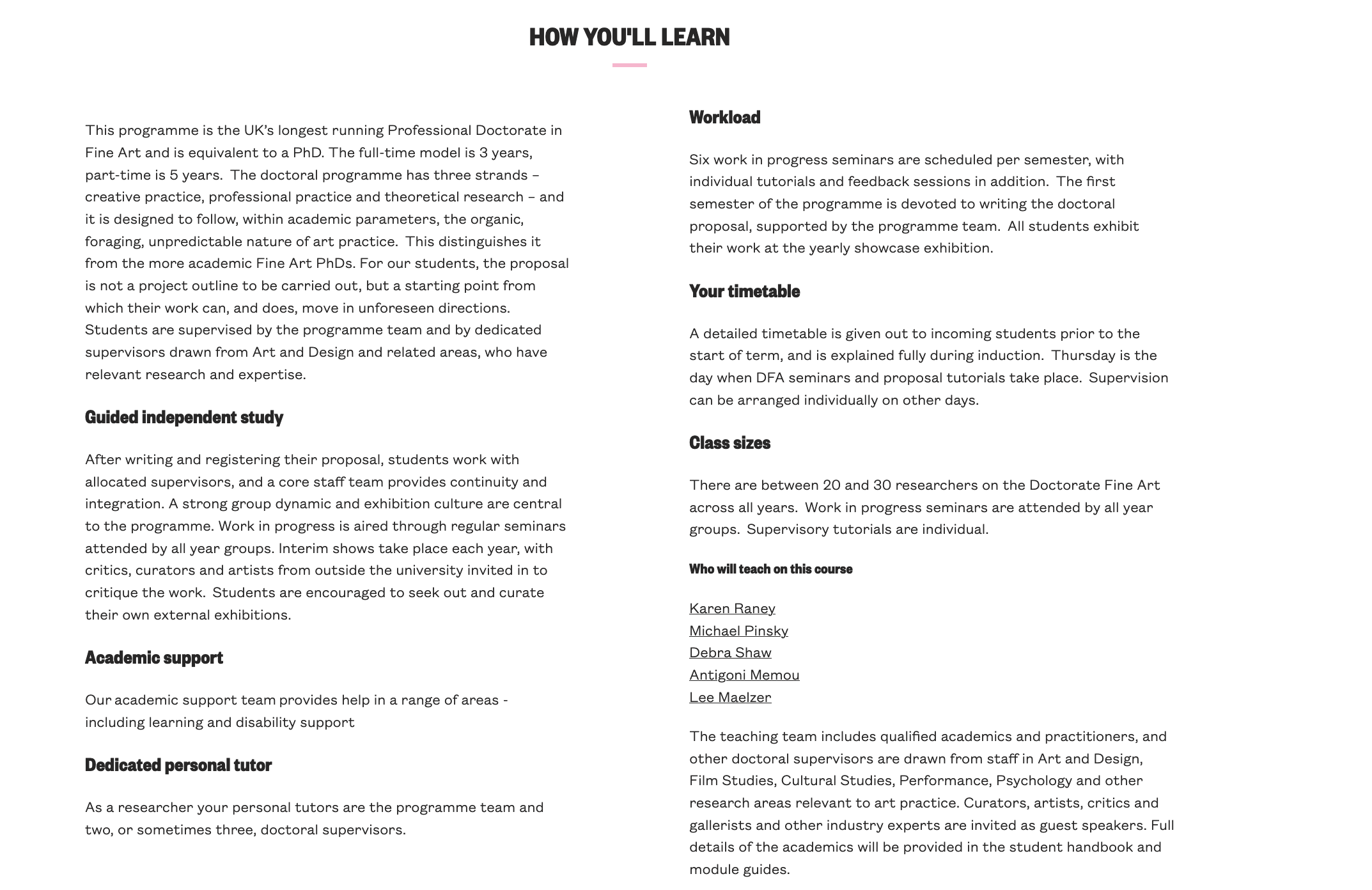
London Alternative Photography Collective
Institute of Making
Art21
Self-Publish Be Happy
A working learning day
Thursday 6th May 2021
Reflecting on issues discussed at the Learning Lunch, I thought it might be useful to map out how working/learning plays out by tracking activity over the following day. The working bit comprised of answering and following up on work-related emails (jobs in UK, Holland, Singapore, Australia), online meetings about governance issues at an FE college, preparation for upcoming meetings, reading a book manuscript and producing test prints for a forthcoming exhibition. Not sure whether updating supervision notes on the UEL PhD Manager system counts as work or learning, but I did that, too.
The distinct learning events were as follows (before work, at lunchtime and after work in this case, but they could as easily have been woven into the working day).
8.45-9.30: Curator-led online tour of the Sunil Gupta retrospective and Evgenia Arbugaeva exhibition at The Photographers Gallery. Pandemic measures have meant that the exhibitions were hung but not open to the public. The exhibition schedule entails that they will now, all being well, only be open to the public for two weeks. The online participants were patrons of The Photographers Gallery, so this was essentially an online substitute for a curator-led private view. I’m familiar with the work of both artists, so the interest here was principally in how the work is presented in the gallery setting and the process by which curators and artists work together. As Gupta’s exhibition is a retrospective, there are decisions to be made about which bodies of work to include, how to distinguish between them and how to relate them to each other. The sequencing of the work, the flow through the gallery and the tight correspondence of the work to phases in Gupta’s life give the exhibition coherence, despite the marked differences in the form taken by each successive project (and the idea of a project frequently being developed post-hoc).
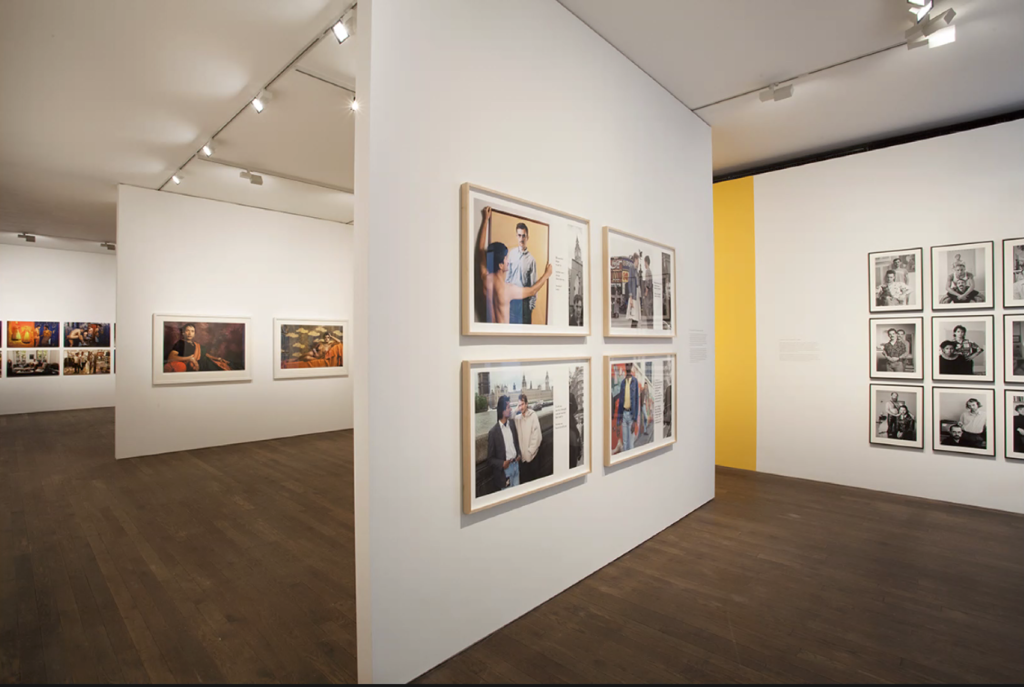
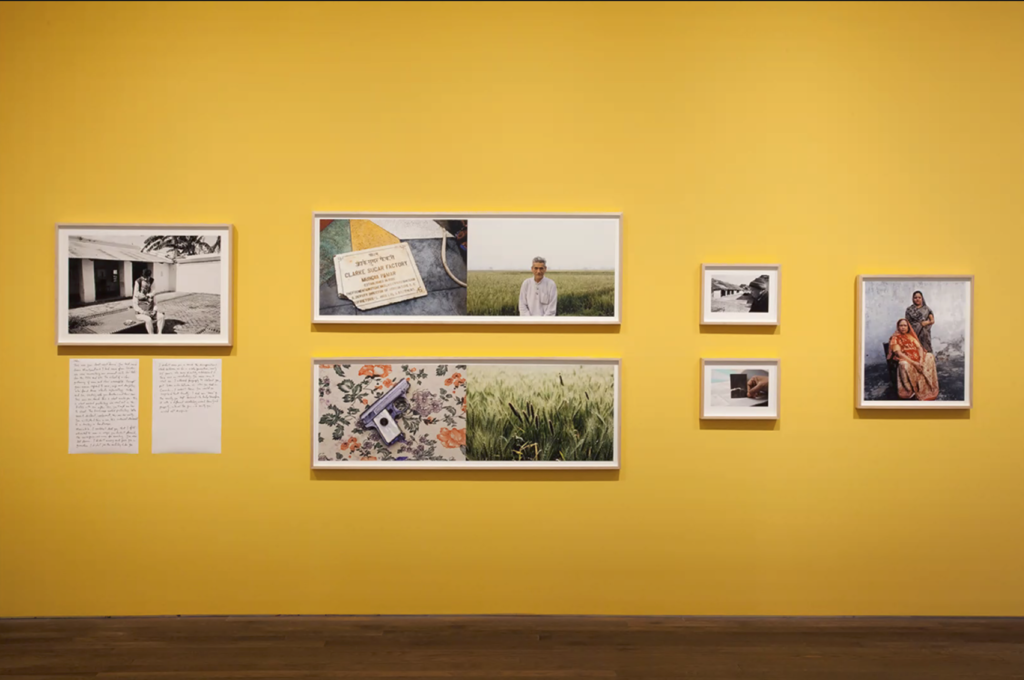
In contrast, Arbugaeva’s exhibition presents a single project, and thus places an emphasis upon creating an environment/atmosphere which enhances the viewers’ engagement with the work. Apart from a graphic map of the area in which the images were made and a short introductory text, the work is visual, and brought together as a coherent whole though gallery layout, colour, lighting and other aspects of design, invoking the dark Russian arctic winter.
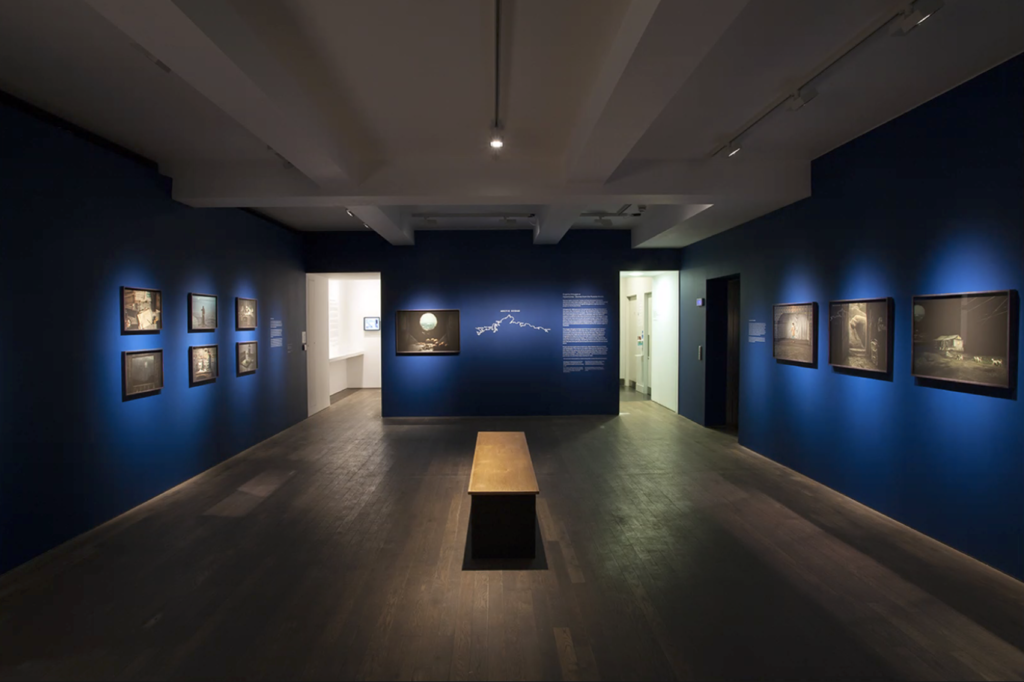
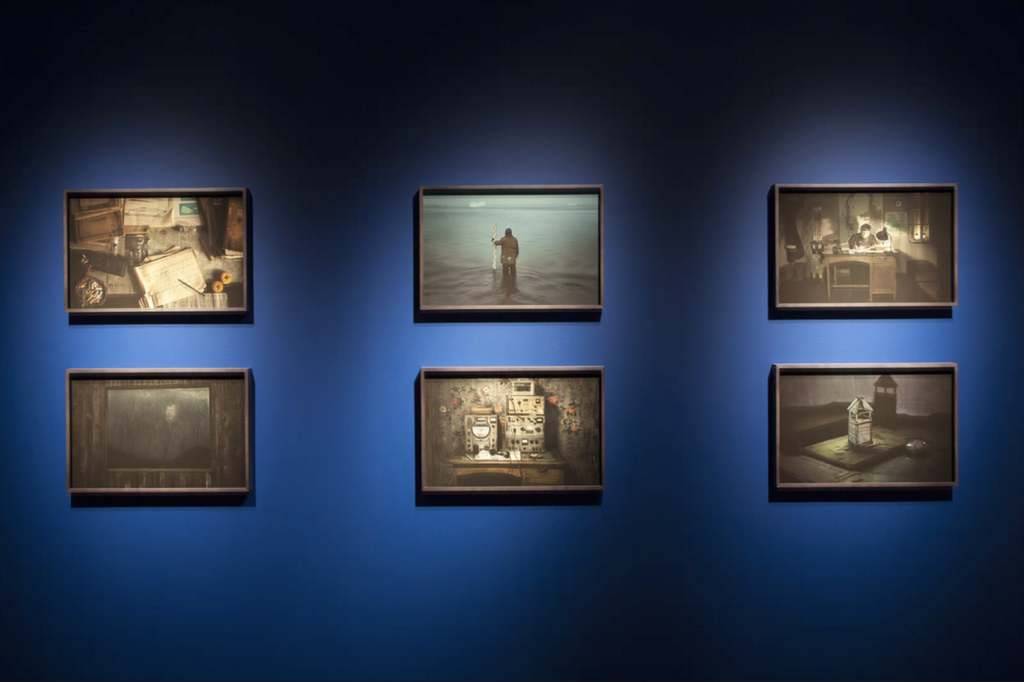
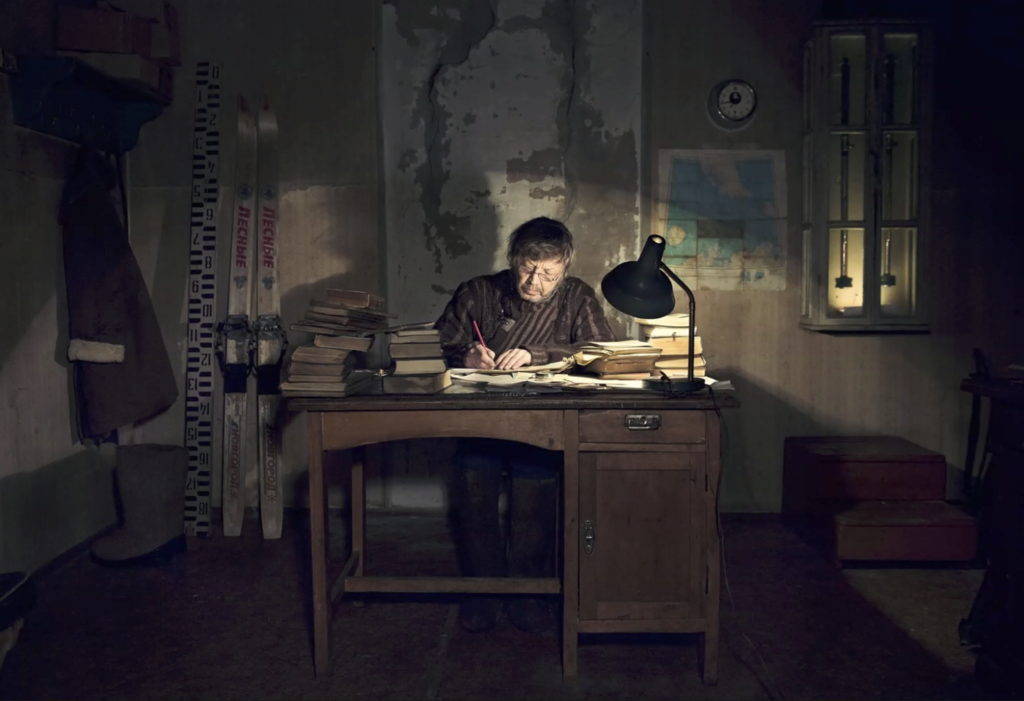
13.00-13.30: Online presentation by photographic artist Rut Blees Luxemburg about public engagement in art using her own work as examples of different modes of engagement. This was part of a programme of activities for undergraduate architecture, art and design students at UEL, and the audience was a mixture of students in a workshop on campus and people who had logged in from outside.
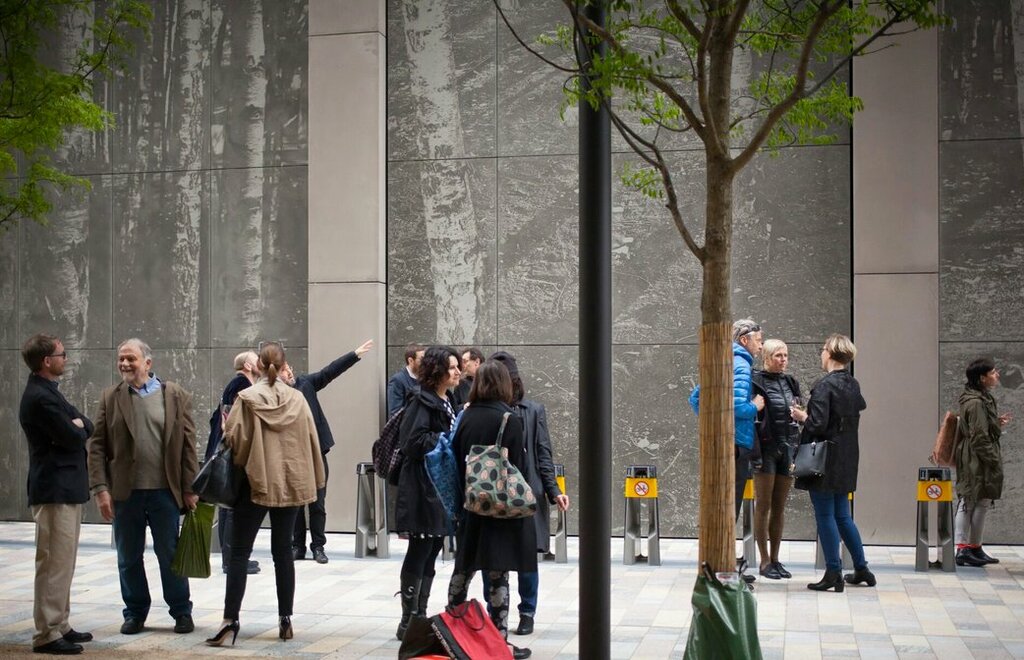
This is work that I know very well, so the interest here is in the particular modes of public engagement, from the printing of images on large concrete panels for the Silver Forest project in Westminster to holding events and seminars (involving, among others, Jean-Luc Nancy) to launch the London Dust exhibition at the Museum of London. Particularly interesting was the opening of Luxemburg’s own artspace Filet in Shoreditch, which she uses as a way of engaging the public with the work of young and emerging artists. The message here is make sure that these community events and opportunities for active engagement are built in to the project, to create dialogue and discourse around the work.
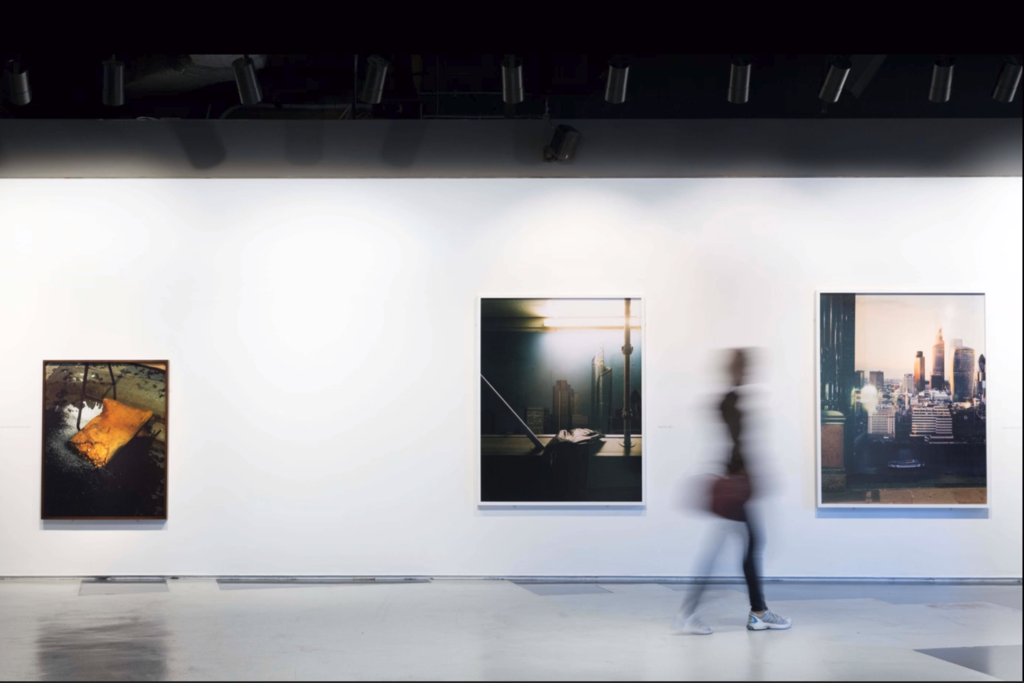
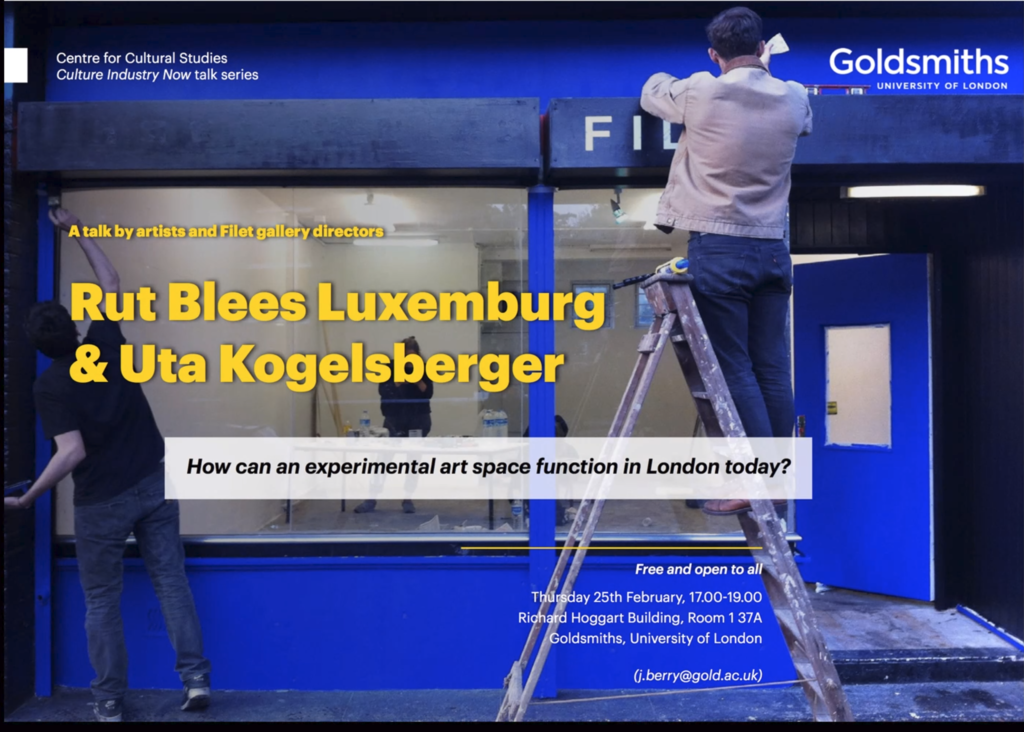
I’d intended to go to the session by film maker Alison Winter but my preceding online meeting over-ran.
17.00-18.00: Points Run: A One Act Play, Written and Performed by Sheridan Humphreys. This was a public online event run by the Menzies Australia Institute at KCL, where Humphreys holds a postgraduate research scholarship. The participants were mostly in the UK and Australia. Humphreys, who is both a PhD student and a lecturer in Screenwriting at Greenwich and Royal Holloway, explored the use of fiction and performance as modes of investigation and representation in research.
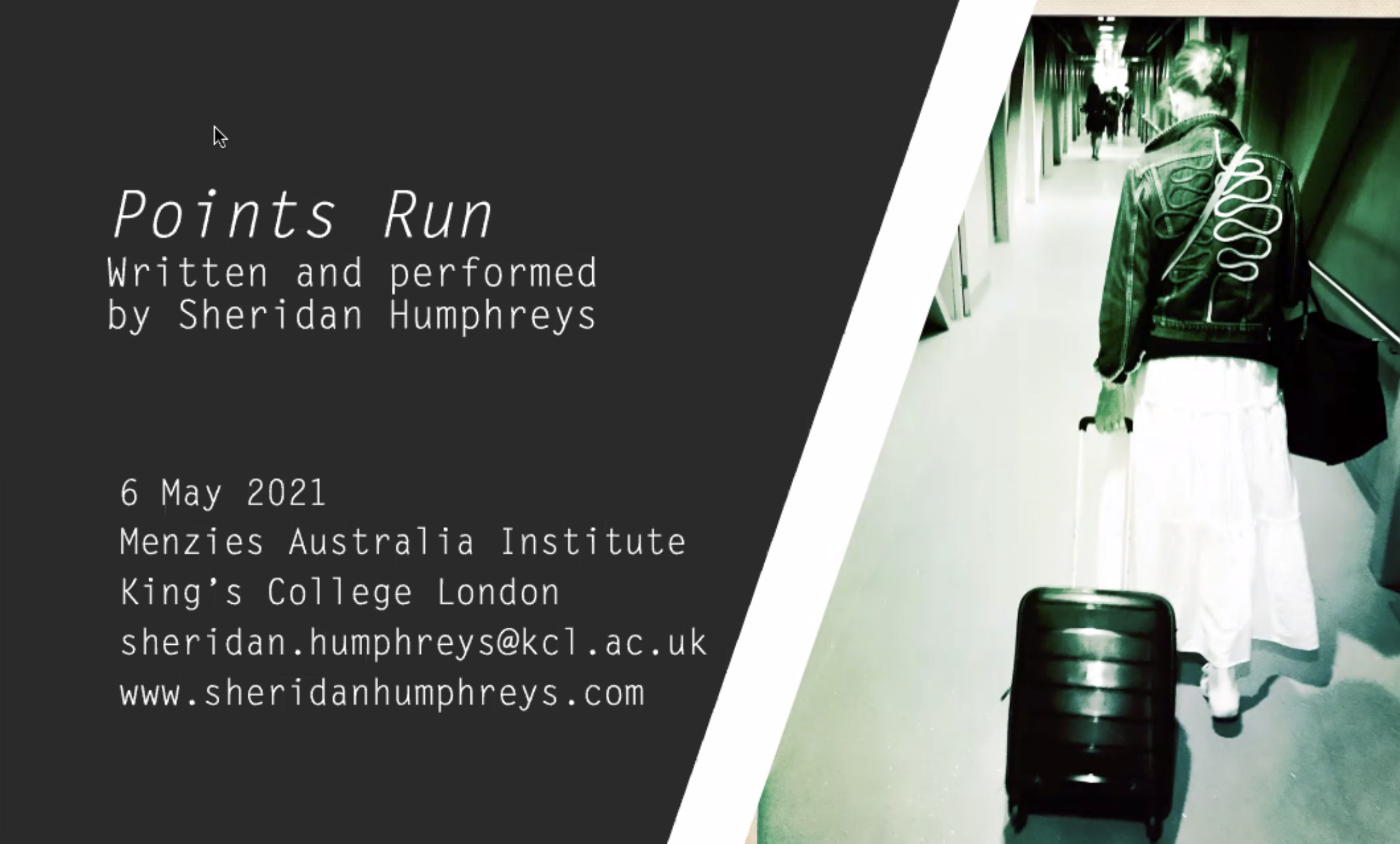
The initial performance acted to provoke discussion both about the substantive focus of the piece (domestic violence and domination) and the use of fiction and speculative forms as a means of investigation/research in the humanities. This resonated strongly with O’Sullivan’s (2017) exploration of fiction as method, developed from an engagement with the non-philosophy of Francois Laruelle (2013). The influence of Sara Ahmed‘s work on Humphreys’ approach also resonates with the work I’m doing with the Centre of Excellence for Equity in Higher Education, and Ahmed’s (2019) exploration of ‘use’, particularly in relation to educational institutions and practices, has direct relevance to the bringing together of my own background as an educator and the development of my current artistic practice.
18.30-19.15: Listened to the Free Thinking episode on Epistemic Injustice while in the bath. Miranda Fricker’s (2007) notions of testimonial and hermeneutical injustice bring us back around to the discussion of student voice and agency in education institutional settings at the Learning Lunch (as does Ahmed’s forthcoming Complaint!), and Basil Bernstein’s question of whose knowledge is valued and transmitted through formal education and, in relation to assessment ‘whose ruler, in whose interests or for what consciousness, desire and identity?’ (in conversation with Joseph Solomon, 1999).
Actually not an atypical day in terms of the range of engagements and diversity of activities. Taking time to make the links between these experiences is a challenge. Writing this has taken longer than it should. It occurs to me that it would not be possible to ‘attend’ such a range of presentations in a day of face to face activity, raising again the question about what we can learn about modes of higher learning from our pandemic pedagogic improvisation, and the need to stop seeing this a pathological episode to be set aside in the return to ‘normality’. There is also a lot here, prompted by relating this art/photographic life/education to my experience as an educator and sociologist, that contributes to an understanding of plurality in practice and in producing a productive dialogue between domains of practice. Brewing alongside this is consideration of Tim Ingold’s (2021) Correspondences and John Newling’s (2020) Dear Nature, which start to draw together other loose but approximal ends, but that’s for another post.
References
Ahmed, S. (forthcoming). Complaint! Durham, NC: Duke University Press.
Ahmed, S. (2019). What’s the Use? On the uses of use. Durham, NC: Duke University Press.
Bernstein, B. & Solomon, J. (1999). “Pedagogy, identity and the construction of a theory of symbolic control”: Basil Bernstein questioned by Joseph Solomon. British Journal of Sociology of Education, 20(2), 265–279.
Fricker, M. (2007). Epistemic Injustice: Power and the Ethics of Knowing. Oxford: Oxford University Press.
Ingold, T. (2021). Correspondences. Cambridge: Polity Press.
Laruelle, F. (2013). Principles of Non-Philosophy, trans. Nicola Rubczak and Anthony Paul Smith. London: Bloomsbury.
Newling, J. (2020). Dear Nature,. Nottingham: Beam Editions.
O’Sullivan, S. (2017). ‘Non-philosophy and art practice (or fiction as method)’. In J.K. Shaw and T. Reeves-Evison (eds) Fiction as Method. Berlin: Sternberg Press.

